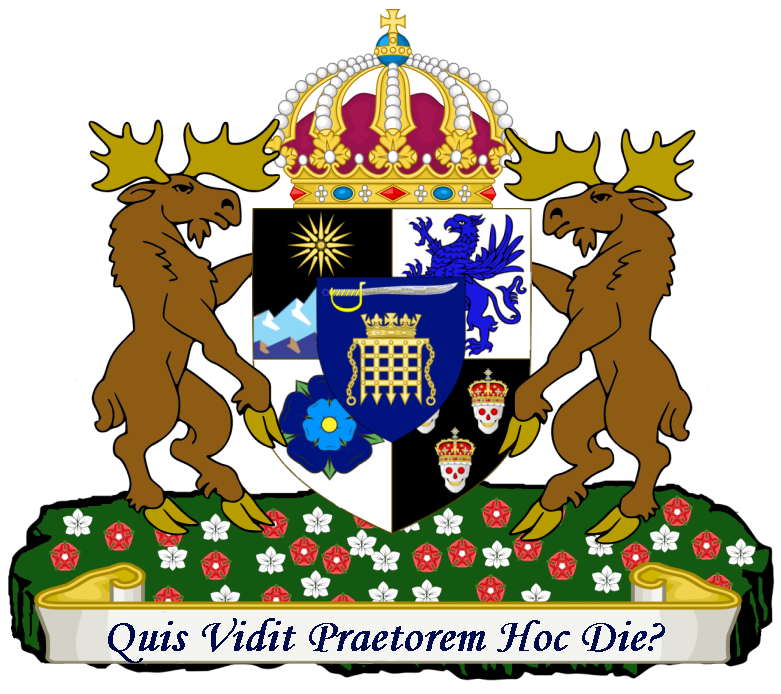Difference between revisions of "Landsraad Bills"
m |
|||
| Line 1: | Line 1: | ||
| − | The | + | [[File:Arms_Landsraad5.png|350px|thumb|right|<div class="center" style="width: auto; margin-left: auto; margin-right: auto;">The [[Landsraad]] of [[Shireroth]].</div> ]] |
| − | [[Landsraad]] | + | |
| − | [[Shireroth]]. A '''Bill''' | + | A '''Bill''' is at the Federal Level of Government of the Imperial Republic of Shireroth a legislative proposal under consideration by the [[Landsraad ]] to amend the Charter or the Lawbook. A Bill does not become law until it is passed by the Landsraad in accordance with the Procedures of the Landsraad. |
| − | + | ||
| − | + | Bills amending the Charter need to be passed, as required by the Charter, with a majority of three-fourths of the votes cast. In addition must any Bill amending the Charter be promulgated by the Kaiser or receive to the consent of three-fourths of the [[Subdivision#Imperial States|Imperial States]], as the case may be, although the latter is only the case with amendments to Article VI and Article VII of the Charter. | |
| − | == Bills and the Lawbook == | + | |
| − | + | ==Bills and the Lawbook== | |
| − | was highly disorganized, and made it difficult to actually remember | + | In days past, bills and acts stood alone after being passed. This method was highly disorganized, and made it difficult to actually remember which laws were passed and which ones were in effect. This was changed when [[the Lawbook]] was instated. Nowadays it is required by the Procedures of the Landsraad that all Bills must be written as an amendment to either the Charter or the Lawbook. |
| − | which laws were passed and which ones were in effect. This was changed | + | |
| − | when [[the Lawbook]] was instated. | + | ==Bills and the Kaiser== |
| − | be | + | The present Charter grants the [[The Kaiser|Kaiser]] the power to veto any Bill passed by the Landsraad. The Landsraad, however, can override a Kaiseral veto with a two-thirds majority. |
| − | == Bills and the Kaiser == | + | |
| − | + | ==See Also== | |
| − | + | *[[The Kaiser]] | |
| − | + | *[[The Landsraad]] | |
| − | Landsraad | + | |
| − | + | [[Category:laws]][[Category:Government]] | |
| − | |||
| − | [[Category: | ||
Revision as of 12:16, 5 January 2017
A Bill is at the Federal Level of Government of the Imperial Republic of Shireroth a legislative proposal under consideration by the Landsraad to amend the Charter or the Lawbook. A Bill does not become law until it is passed by the Landsraad in accordance with the Procedures of the Landsraad.
Bills amending the Charter need to be passed, as required by the Charter, with a majority of three-fourths of the votes cast. In addition must any Bill amending the Charter be promulgated by the Kaiser or receive to the consent of three-fourths of the Imperial States, as the case may be, although the latter is only the case with amendments to Article VI and Article VII of the Charter.
Bills and the Lawbook
In days past, bills and acts stood alone after being passed. This method was highly disorganized, and made it difficult to actually remember which laws were passed and which ones were in effect. This was changed when the Lawbook was instated. Nowadays it is required by the Procedures of the Landsraad that all Bills must be written as an amendment to either the Charter or the Lawbook.
Bills and the Kaiser
The present Charter grants the Kaiser the power to veto any Bill passed by the Landsraad. The Landsraad, however, can override a Kaiseral veto with a two-thirds majority.
